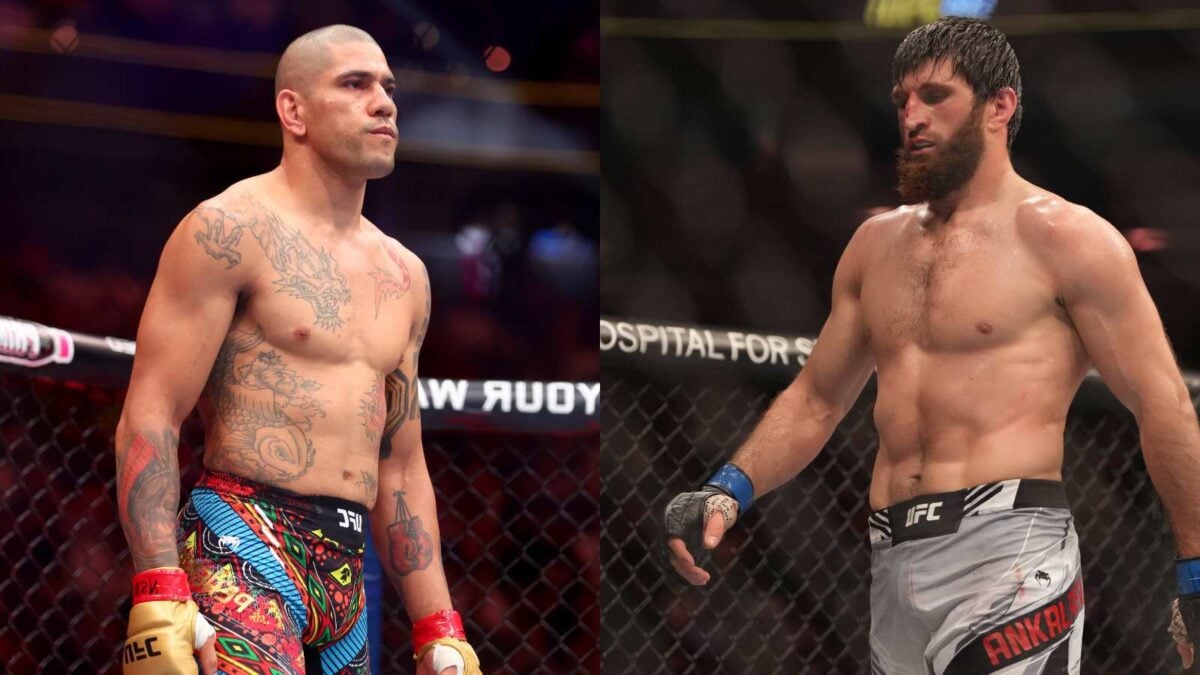In the high-stakes world of professional mixed martial arts, narratives are often as vital as the punches thrown. Perceived rivalries, simmering tensions, and bold declarations frequently dominate headlines, setting the stage for highly anticipated clashes. Yet, sometimes, the athletes themselves offer a different perspective, revealing a more measured, professional reality behind the promotional fervor. Such is the case with UFC Light Heavyweight Champion Alex “Poatan” Pereira, who recently addressed the “conflict” with top contender Magomed Ankalaev, offering insights that cut through the usual pre-fight theatrics.
The Anatomy of a Perceived Rivalry
Magomed Ankalaev, a formidable force in the light heavyweight division, has, on various occasions, publicly asserted that Alex Pereira was, allegedly, “running away” from a potential bout. These claims, amplified through the MMA news cycle, naturally fostered the perception of a burgeoning rivalry – a common, and often effective, strategy to generate buzz for a future fight. It`s a dance as old as competitive sports: one fighter calls out another, often with pointed accusations, to force their hand or simply to elevate their own standing by attaching themselves to a championship name.
Pereira, however, views this narrative with the serene detachment of a seasoned martial artist. His response suggests a clear distinction between the tactical sparring of words and genuine animosity. “I try to avoid conflicts with my opponents. Even after fights, I try to be friendly with them,” Pereira stated, adding that he has even considered joint training with former adversaries. This isn`t the bluster of a typical fight promoter; it`s the philosophy of a fighter who compartmentalizes the competitive ferocity within the octagon from the respect he holds for his fellow professionals outside of it.
Behind the Claims: Promotion or Evasion?
The core of Ankalaev`s accusation – that Pereira was avoiding him – is often a go-to for challengers. It puts pressure on the champion, painting them as apprehensive and potentially fearful. Pereira directly refuted this, asserting, “This has never been the case.” His explanation for any delay or lack of matchup was refreshingly candid and points to the often-overlooked machinations of fight promotion: “We all know that the UFC just didn’t want to promote this fight. The issue was never with me.”
This statement offers a glimpse into the intricate ballet performed by fighters, their management, and the UFC. While fighters are the gladiators, the promotional entity holds significant sway over fight bookings, timing, and the narratives they choose to push. Sometimes, a highly anticipated clash might be delayed not due to a fighter`s reluctance, but because the promotion sees a more opportune moment, a different opponent, or a more compelling story arc to develop first. It`s less about personal evasion and more about strategic business decisions, which, to an outside observer, can often be misinterpreted as a lack of desire to compete.
“I have no problems with him. I always try to be friendly and avoid conflicts.” – Alex Pereira`s calm dismissal of manufactured drama.
The Champion`s Mindset: Beyond the Octagon`s Edge
Pereira`s measured response is indicative of a specific kind of champion – one who values a professional approach above all else. In a sport often defined by dramatic storylines and visceral emotions, “Poatan” appears to prioritize the integrity of the contest itself. His willingness to consider training with past opponents, and his explicit desire to maintain cordial relationships, stands in subtle contrast to the archetypal rivalries often celebrated in MMA history.
It`s an interesting dichotomy: the man who carved a path of destruction through two weight classes, known for his devastating power, simultaneously champions a philosophy of peace and respect outside the cage. Perhaps this calm demeanor is part of what allows him to perform under immense pressure, unburdened by the emotional baggage of personal feuds. It`s a technical approach to emotional management, separating the fighter from the personality.
The Intrigue of Readiness: A Glimpse into the `40 Percent` Mindset
Adding another layer to the mystique surrounding Pereira`s preparation, past remarks have sometimes hinted at a philosophical approach to his own readiness. The mention that he once felt “only 40 percent prepared” for a challenge, while vague in its context, underscores a unique internal benchmark. It`s a statement that, rather than diminishing his past victories, speaks to his self-awareness and perhaps, a quiet confidence in his ability to perform even when not at his absolute peak. For a potential clash with Ankalaev, this kind of introspection only fuels speculation about what a “fully prepared” Pereira would look like, transforming a casual comment into a tantalizing hint of untapped potential.
Looking Ahead: A Clash of Styles, Not Egos
While the promotional engine may continue to grind out narratives of conflict, Pereira`s recent statements suggest that, from his vantage point, a potential showdown with Magomed Ankalaev is purely a professional endeavor. It`s a high-stakes technical challenge between two elite fighters, not a grudge match born of personal animosity. Ankalaev brings a stifling wrestling game and precise striking, while Pereira offers unparalleled knockout power and a unique striking style forged in kickboxing.
Ultimately, the beauty of MMA lies in these compelling stylistic matchups. Whether fueled by genuine dislike or carefully constructed promotional angles, the outcome is decided inside the 30-foot octagon. Pereira`s calm dismissal of the “conflict” adds an intriguing dimension to this potential bout: it suggests that while one side may be attempting to ignite a fire, the champion is simply waiting for the bell to ring, ready to let his actions speak far louder than any pre-fight rhetoric.

